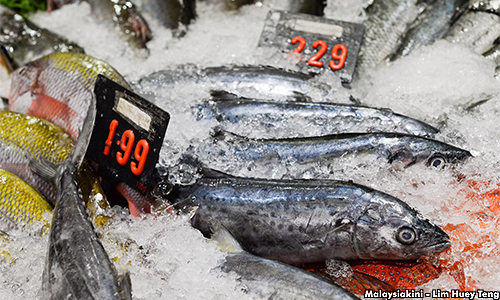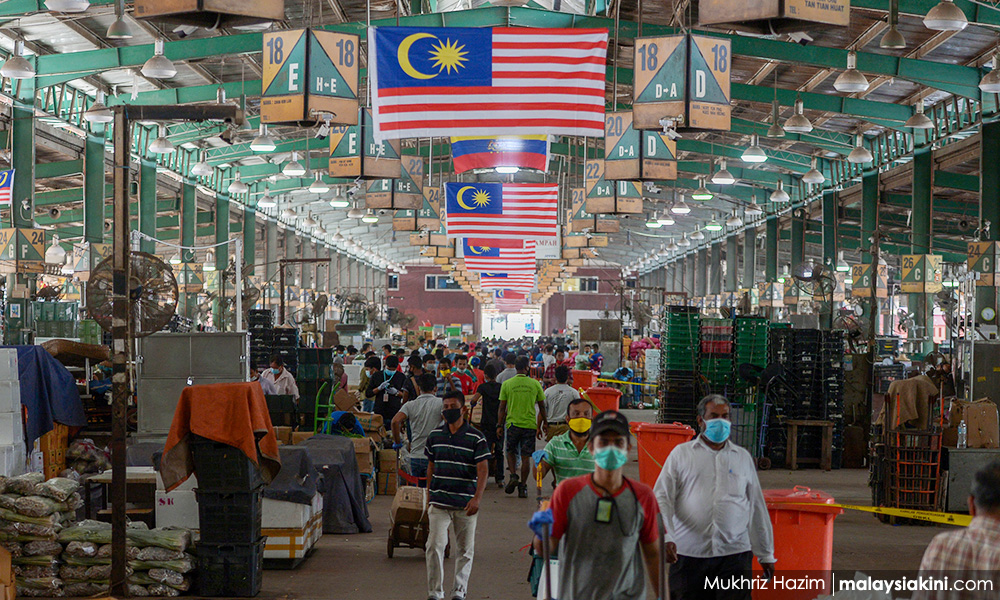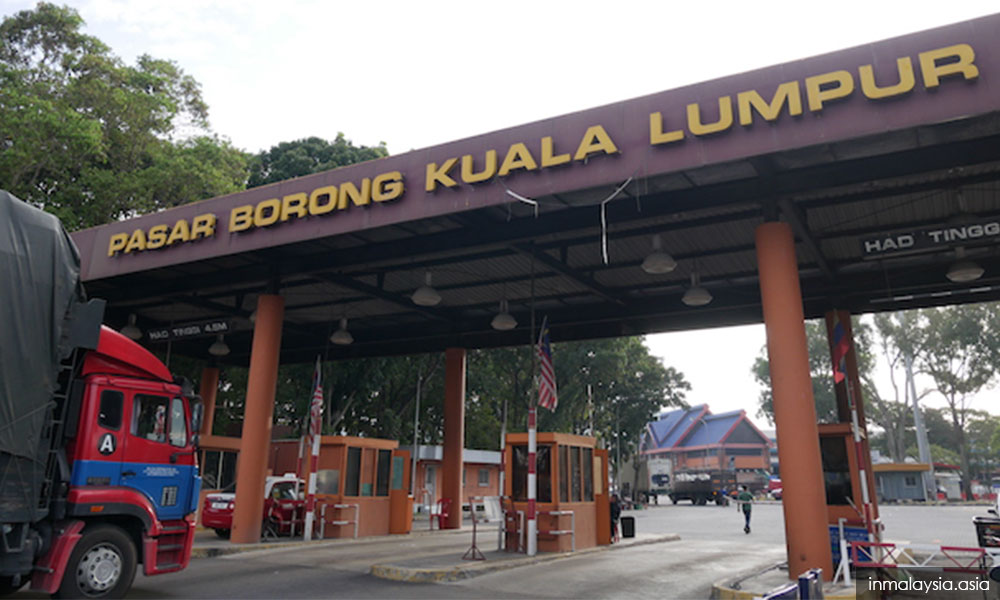
The government's decision to twice postpone the reopening of the Kuala Lumpur Wholesale Market has resulted in wholesalers holding back on their orders.
This situation, according to industry players, would likely result in lower volume and higher-priced seafood in the Klang Valley.
According to Kuala Lumpur Hoi Seong Fish Wholesalers Association president Sing Kian Hock, his association members have suffered heavy losses due to the postponements.
He explained that wholesalers place orders three days in advance and the sudden postponements imposed on Monday and Wednesday meant that their products had to be channelled elsewhere at a loss.
Sing estimated that the wholesale market in Selayang is a transit hub for at least 70 percent of the seafood consumed in the Klang Valley.
The authorities closed off the market on April 18 due to Covid-19 infections among workers there.
The first postponement of the reopening was announced on Monday and the second on Wednesday. The market is scheduled to open tomorrow, but Sing said wholesalers are not holding their breath.

"When we were notified about the latest postponement, the seafood containers were already on the way to market.
"We appealed to the government to allow us to unload or sell the fishes on Wednesday but to no avail.
"We were forced to ship the products elsewhere or immediately freeze them," he said, estimating losses amounting to RM10 million.
"Most of us dare not place new orders. We expect to see a sharp decrease in seafood arriving at the market if it is allowed to re-open on Friday as scheduled."
Compounding matters for the wholesalers was the enhanced movement control order (MCO) imposed on the Pusat Bandar Utara neighbourhood, which is adjacent to the market.
The neighbourhood is home to the hundreds of market workers, many of them foreign labourers.
Sing said while the government only allowed foreigners with documentation to work, he said many of the workers are used to working at the market illegally.
He said wholesalers have been attempting to secure papers for their staff, but they have been unsuccessful.
Without enough staff to unload and process the arriving seafood, Sing said this will result in shortages in the wider market.
"The wholesale market offers plenty of variety of seafood and supplies up to 70 percent of the fish demand in Kuala Lumpur and Selangor while the rest is sent to Melaka, Negeri Sembilan and Perak," he said.

Some supermarkets and hypermarkets, including an international supermarket chain, also get their supplies from the Kuala Lumpur Wholesale Market, he said.
"However, without the help of the migrant labourers, I think the majority of wholesalers might scale down their operations or cease operations temporarily," he said.
"Prior to this, we already reduced the seafood volume by half as most markets and night markets were ordered to cease operations due to the MCO."
He expects the market to turn to frozen fish, which can be kept up to a year, instead of fresh fish which generally can be kept for only five days.
Moving forward, Sing hopes the government would engage the wholesalers' association to discuss the closure of the market and refrain from making any drastic decision that impacts the wholesalers.
The Kuala Lumpur Wholesale Market comprises of 168 seafood stalls, 216 vegetable stalls and 64 fruit stalls.
Wholesaler associations have told Malaysiakini that the volume of seafood and fish has decreased more than 60 percent since the MCO began March 18. - Mkini


No comments:
Post a Comment
Note: Only a member of this blog may post a comment.